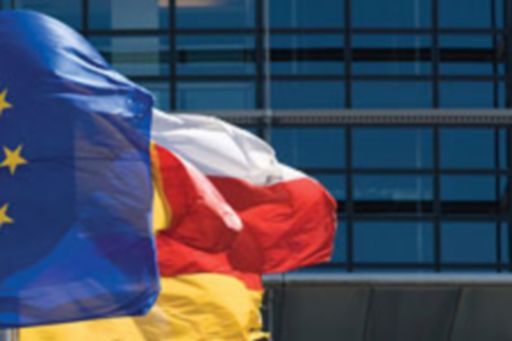Euro Tax Flash from KPMG's EU Tax Centre
Euro Tax Flash from KPMG's EU Tax Centre
By policy statement dated April 25, 2016 (DGB 2016/1731M, published on April 29, 2016) the Dutch Deputy Minister of Finance followed-up on the final judgment of the Dutch Supreme Court in the Miljoen, X and Société Générale cases

>> Go back to the Euro Tax Flash homepage
New policy statement on requests for the refund of Dutch dividend withholding tax and personal income tax on Dutch real estate
Net Taxation – Local implementation – The Netherlands
By policy statement dated April 25, 2016 (DGB 2016/1731M, published on April 29, 2016) the Dutch Deputy Minister of Finance followed-up on the final judgment of the Dutch Supreme Court in the Miljoen, X and Société Générale cases. Based on this policy statement, it is now clear how the Dutch tax authorities will deal with requests by non-resident shareholders for the refund of Dutch dividend withholding tax. In addition, non-resident individuals who own real estate in the Netherlands will also benefit, as they will now be entitled to the tax-free amount.
Background
The three abovementioned cases concerned the Dutch dividend withholding tax levied on dividends distributed to foreign shareholders (two Belgian individuals and a French bank), who all held portfolio shareholdings in a Dutch company. The Dutch Supreme Court asked the Court of Justice of the European Union (“CJEU”) for a preliminary ruling in those cases. After the ruling of the CJEU on September 17, 2015 (C-10/14, C-14/14 and C17/14), the Dutch Supreme Court ruled on March 4, 2016 (ECLI:NL:HR:2016:363) that the Dutch dividend withholding tax leads to a restriction of the free movement of capital to the extent that the dividend withholding tax burden of foreign shareholders is higher than the personal or corporate income tax burden of resident shareholders that own the same shares.
The policy statement of April 25, 2016
The policy statement regulates the settlement of requests filed by non-resident taxpayers for the refund of dividend withholding tax levied in breach of EU law. In order to determine whether such refunds should be granted, a comparative analysis should be made on a case-by-case basis. In this analysis, a comparison must be made between the tax burden of the non-resident shareholder on the dividends received from their Dutch portfolio shares with the tax burden of a hypothetical resident shareholder whose assets would only consist of the shares held by the non-resident taxpayer.
Relevant factors for the comparison for individual taxpayers
The policy statement confirms that when comparing the tax burden of non-resident individual taxpayers with the tax burden of resident taxpayers, a reference period of one calendar year must be taken into account. In the comparison, the shares in Dutch companies as a whole must be taken into account. Furthermore, the entire tax free amount (heffingvrije vermogen) can be deducted. Debts related to the acquisition of the shares are however not deducted from the non-resident taxpayer’s shares.
Relevant factors for the comparison for non-individual taxpayers
When comparing the tax burden of non-resident companies with that of resident companies, only costs that are directly related to the collection of the dividends, such as bank charges, should be taken into account. The policy statement explicitly states that foreign exchange results and financing costs cannot be qualified as costs that are directly related to the collection of the dividends. Also pre-acquisition dividend (meegekocht dividend) and costs that relate to other activities of the non-resident company, are not taken into account in the comparison.
Neutralization of discriminatory dividend withholding tax
In line with EU case law, the policy statement states that the Netherlands, as source state, will not refund Dutch dividend withholding tax if the apparently discriminatory dividend withholding tax is fully neutralized by the shareholder’s state of residence via a treaty credit. Such neutralization can also result from an ordinary credit. According to the policy statement, neutralization can also occur if the shareholder’s state of residence allows any excess credit to be carried forward.
Tax base of foreign individual taxpayers
Based on the Dutch Personal Income Tax Act, non-qualifying foreign individual taxpayers are only subject to tax in the Netherlands with respect to a limited tax base. The tax-free amount (heffingvrije vermogen) is not taken into account when determining this tax base. However, the policy statement provides for non-qualifying foreign individual taxpayers with Box 3 income (i.e. income from savings and investments such as real estate located in the Netherlands) to now also take the tax-free amount into account.
EU Tax Centre comment
Based on the policy statement of April 25, 2016, we recommend non-resident shareholders that own portfolio shareholdings in Dutch companies and non-resident individuals of the Netherlands who own Dutch real estate to review their tax position to determine whether they could apply for a (partial) refund of Dutch tax. This refund can be claimed upon request for the past five years (for non-resident individual taxpayers) or three years (for non-resident non-individual taxpayers) and must include detailed information
Should you have any queries about or problems with accessing the documentation, or if you would like to share any information that you think would be of relevance, please do not hesitate to contact KPMG’s EU Tax Centre, or, as appropriate, your local KPMG tax advisor.
Robert van der Jagt
Chairman, KPMG’s EU Tax Centre
Partner, Meijburg & Co
vanderjagt.robert@kpmg.com
Barry Larking
Director EU Tax Services, KPMG’s EU Tax Centre
Director, Meijburg & Co
larking.barry@kpmg.com
